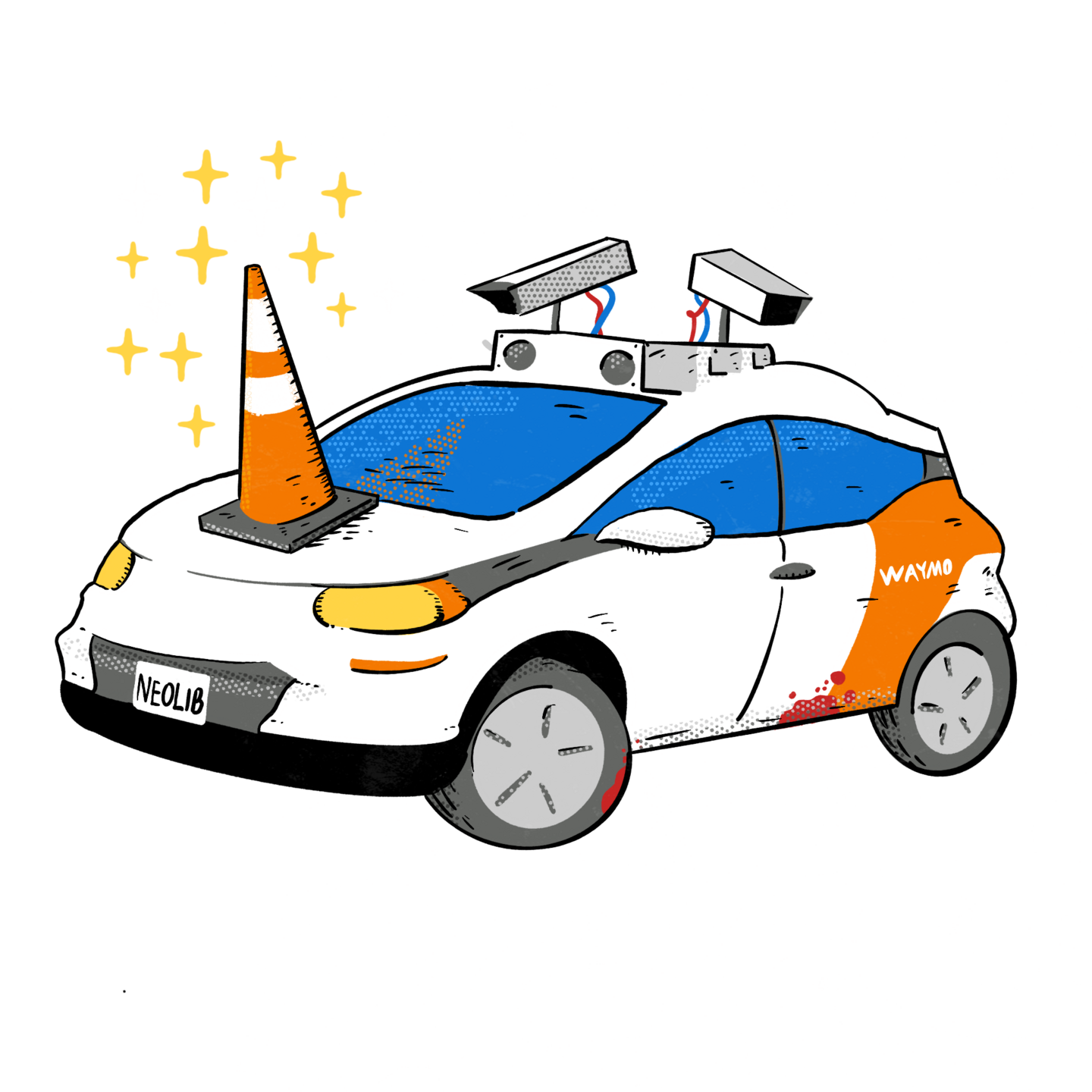
SF Chronicle – Newsom sides with autonomous vehicle companies, vetoes safety regulations
Editors note: this is actually no surprise at all. Governor Newsom always sides with money (campaign donations, fancy dinners at French Laundry!) over safety. The whole reason that robotaxis have run amuck is because the ability to regulate them was taken away from local jurisdictions and placed instead under the truly diabolical CPUC. But again allows autonomous semi-trucks, and also allows robotaxi companies to hide their safety data.
See original article by Sophia Bollag at SF Chronicle
Gov. Gavin Newsom sided with robotaxi and autonomous vehicle companies Friday when he vetoed bills that would have subjected them to new safety rules.
One bill, AB3061 by Assembly Member Matt Haney, would have required AV companies to report more data on crashes and traffic violations to the state. Newsom also vetoed a bill, AB2286 by Assembly Member Cecilia Aguiar-Curry, that would have required human operators on autonomous trucks.
Companies are only required to report to the state collisions, mileage and “disengagements” — when an autonomous vehicle is manually taken over after a technical or safety issue — if they are using testing permits. The Haney bill that Newsom vetoed would have required companies with permits to deploy robotaxis in California to meet those same reporting requirements. It also would have required the Department of Motor Vehicles to publish the information online.
In a veto message, Newsom said the DMV was already working on its own draft regulations related to autonomous vehicles. He also said the DMV would not be able to implement the new policy by the July deadline in the bill.
Haney, a San Francisco Democrat, said his bill was prompted by reports of crashes and other safety issues related to autonomous vehicles.
“There is strong public interest in AV data transparency and safety,” Haney told his fellow lawmakers during a committee hearing on the bill. “This bill will ensure that we have that level of transparency and accountability that’s needed.”
The Autonomous Vehicle Industry Association opposed the measure because it would have required AV companies to report more data.
“Any new reporting requirements come with costs, and this bill would add significant new compliance obligations on an industry that’s already subject to a patchwork for federal and state reporting regimes,” the group’s government affairs director, Renée Gibson, told lawmakers at the hearing.
Newsom has expressed support for increasing transparency around autonomous vehicles before, even as he has said he believes they represent the future of driving.
Last year, Newsom endorsed the DMV’s decision to ban robotaxi company Cruise from operating in San Francisco after the company allegedly withheld video from a crash that seriously injured a pedestrian.
But he also has sided with autonomous vehicle companies in the past. He angered his allies in the labor movement last year when he vetoed an earlier version of the bill to require human operators in autonomous trucks. In his veto message at the time, he argued the DMV already has sufficient power to regulate the burgeoning autonomous vehicle industry. He echoed that argument in his veto of the newer bill Friday, noting that DMV has released draft rules for self-driving trucks that would restrict their use on certain roads and limit their ability to transport hazardous materials.
Newsom on Friday also signed a bill to dictate what happens when self-driving cars violate traffic rules in response to the dilemma San Francisco police have faced when trying to ticket driverless cars that break traffic laws. Initially, the bill would have allowed police to ticket the AV companies that operate the cars, but it was watered down in the face of industry opposition.
The amended version Newsom signed does not allow police to ticket AVs, but instead to issue a “notice of autonomous vehicle noncompliance” that the companies must report to the DMV. The DMV will determine whether to punish the companies over such notices. The Teamsters union opposed the amended bill, arguing it will penalize human drivers more for breaking the same traffic rules, like driving on the wrong side of the street.
“This creates unequal enforcement, where a human driver can be cited or even charged for traffic violations, but AV companies are only noticed through the DMV,” the union wrote in a statement.
The bill’s author, Assembly Member Phil Ting, D-San Francisco, argues the new law will still make city streets safer, in part by requiring AV companies to provide ways for police and first responders to communicate with them to ensure driverless cars don’t interfere with emergency response work.
See original article by Sophia Bollag at SF Chronicle
